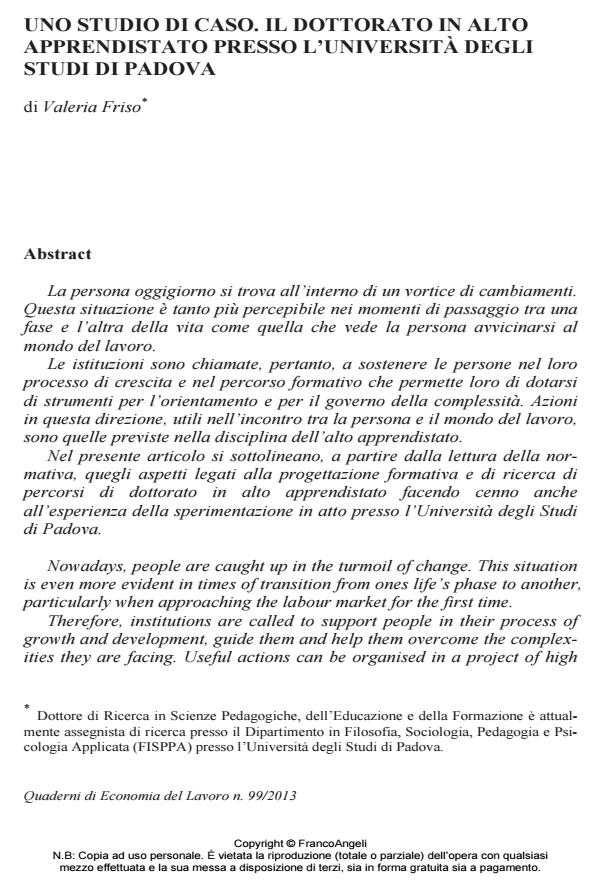Uno studio di caso. Il dottorato in alto apprendistato presso l’università degli studi di Padova
Journal title QUADERNI DI ECONOMIA DEL LAVORO
Author/s Valeria Friso
Publishing Year 2013 Issue 2013/99
Language Italian Pages 18 P. 149-166 File size 626 KB
DOI 10.3280/QUA2013-099008
DOI is like a bar code for intellectual property: to have more infomation
click here
Below, you can see the article first page
If you want to buy this article in PDF format, you can do it, following the instructions to buy download credits

FrancoAngeli is member of Publishers International Linking Association, Inc (PILA), a not-for-profit association which run the CrossRef service enabling links to and from online scholarly content.
Nowadays, people are caught up in the turmoil of change. This situation is even more evident in times of transition from ones life’s phase to another, particularly when approaching the labour market for the first time. Therefore, institutions are called to support people in their process of growth and development, guide them and help them overcome the complexities they are facing. Useful actions can be organised in a project of high apprenticeship, identifying the interests of all the actors involved: Universities, Students, and Businesses. In this article we highlight these aspects of educational planning and research on doctorate courses in high apprenticeship, we referred to the experience of University of Padua
Valeria Friso, Uno studio di caso. Il dottorato in alto apprendistato presso l’università degli studi di Padova in "QUADERNI DI ECONOMIA DEL LAVORO" 99/2013, pp 149-166, DOI: 10.3280/QUA2013-099008